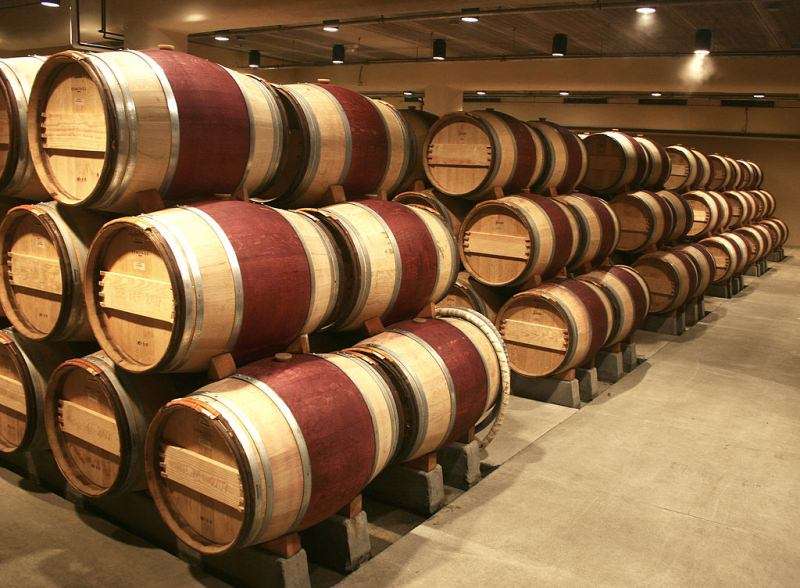California Destroys Winery Over Use of Volunteers


Apparently your labor is the opposite of your sexuality in California: You can sell it, but you can't give it away for free.
California has a state law that prohibits for-profit companies from using volunteer labor. Anybody who knows anything about employment economics knows that this isn't going to hit those big, dastardly corporations that people hate. No, it's going to end up destroying small wineries like Westover Winery in Castro Valley. From the Mercury News:
A small-time vintner's use of volunteer workers has put him out of business after the state squeezed him like a late-summer grape for $115,000 in fines — and sent a chill through the wine industry.
The volunteers, some of them learning to make wine while helping out, were illegally unpaid laborers, and Westover Winery should have been paying them and paying worker taxes, the state Department of Industrial Relations said.
"I didn't know it was illegal to use volunteers at a winery; it's a common practice," said winery owner Bill Smyth.
So instead, the place will shut down. It was open only 10 hours of week and earned about $11,000 a year in profits for the owning couple. The story notes that half of these volunteers were actually students taking a class about making wine and were benefiting from what they were learning. Essentially they were interns:
This was an incredible opportunity for me," said Peter Goodwin, a home winemaker from Walnut Creek who said he dreams of opening a winery with some friends. "I got to learn from someone who knows the business."
The winery sometimes asked Goodwin if he wanted to assist in different tasks.
"That's what I wanted, to be as involved as much as possible — it was all about learning," he said. "I don't understand the state's action. It was my time, and I volunteered."
A state spokesperson's response was to whine about what might happen if there were a "catastrophic accident" (lawsuits?) and that it wasn't "fair" for wineries that have to pay employees to compete with wineries who don't. I don't think anybody was worried that this $11,000-a-year empire was going to put anybody out of business, and it's the state that mandated this system in the first place. Whenever anybody who works in government talks about creating a level field for the marketplace, you know some small business owner somewhere is about to get screwed over. The story notes that there are many small wineries like this one in the area who rely on volunteers. They had to send them all home.
(Hat tip to Hit and Run commenter Old Man With Candy.)
Editor's Note: As of February 29, 2024, commenting privileges on reason.com posts are limited to Reason Plus subscribers. Past commenters are grandfathered in for a temporary period. Subscribe here to preserve your ability to comment. Your Reason Plus subscription also gives you an ad-free version of reason.com, along with full access to the digital edition and archives of Reason magazine. We request that comments be civil and on-topic. We do not moderate or assume any responsibility for comments, which are owned by the readers who post them. Comments do not represent the views of reason.com or Reason Foundation. We reserve the right to delete any comment and ban commenters for any reason at any time. Comments may only be edited within 5 minutes of posting. Report abuses.
Please to post comments


California has a state law that prohibits for-profit companies from using volunteer labor.
I assume then that unpaid internships are illegal in California? And of course this is designed to go after small wineries to benefit the big wineries. Who the hell do you think runs the California government.
It really is genius how various giant corporations and 21st Century Robber barons convince the brain dead voters of California to do their bidding in the name of fairness and helping the little guy.
Laws like that are of course going to have exceptions for groups, industries and organizations that the political class favors.
Cynic!
The interns could marry people in the business, and then they'd come under a family exception, I'm sure.
Difference is, now we have real robber barrons. Rockefeller could only dream of using the government to shut down his competition.
What? Rockefeller regularly used regulations to shut down his smaller competition.
The winery fucked up.
The local community college here has a vineyard and a winery. You can pay tuition and then provide free labor to the school.
Local wineries (that's right, we have wineries in IA) will "sell" an afternoon experience where people will pay to pick grapes in exchange for a tee shirt and a free lunch.
The CA wineries just need to sell the opportunity to work in their wineries -- no free labor involved.
Yeah, if you just make people pay for working there you will save them from the exploitation of working there for free.
This is all about the California government getting their cut, in state income taxes. No income, no taxes.
Couldn't they contract out that part of the job to a non-profit?
"I want to work for you for free."
"No, we don't DO exploitation in California!"
"I'm an undocumented alien and I want to work you under the table for cash."
Marv Albert voice "Yes! Yes!"
I don't want to be worked under the table by an immigrant.
Graduate programs are safe because no one. No one. profits from the California university system. Whew!
That's ok. I'm excited to see California implode so I can move there after the dust settles.
Better bring a metal goalie mask.
I'll just move to the desert part near Nevada. I don't need pacific west coast weather.
Then why not just move to the shitty part of Arizona?
Because I want to be a famous punk rock guitarist?
California has great weather, but that can't make all the crap worth it.
That's why you wait for the implosion. Then I'll take the statehouse forcibly and declare myself king of France!
I don't know...although those dumbshits are still going to be there and you'll still have to deal with them.
Don't worry, it's splitting into six parts soon.
Your body the state employment office's choice.
Government unintentionally creates more enemies of government.
Essentially they were interns...
THAT'S EVEN WORSE. Fucking slave traders deserve to be shut down.
yes, because they were being forced to do the work and kept there under threat of violence.
no, wait, they were willingly learning about their area of education and interest.
I'm sure the United Farm Workers had nothing to do with this.
win.
This makes sense. We all know that capitalism is a system of grotesque exploitation and injustice, and only through the wise and learned hand of our elected overseers can the greed of these robber-barons be tempered from further immiseration of the glorious worker.
It's textbook economics, really.
Put up a fucking wall around CA before this shit can spread to the rest of the country.
Anybody who claims the government creates jobs should be pounded flat with a shovel.
By a bonded and insured union shovel pounder?
Can't have a volunteer shovel pounder, can we?
Unless this guy was rounding people up off the street at gunpoint to stomp his grapes, there is no legitimate justification for the state to get involved.
I crack myself up.
Article doesn't say, but if the State can arbitrarily fine Westover Winery, it must be incorporated. The simple solution is for the winery to declare bankruptcy. Then either resume business under a new corporation or, better, resume business without incorporating.
A corporation is a creation of the State and therefore under its control. Without incorporating, the business is not under State control and State can't dictate how it is to operate.
Dude, you are funny.
Let's see how that goes for them...
Without incorporating, the business is not under State control and State can't dictate how it is to operate.
Tell that to the State.
Yeah, but then they'll fine the actual people directly.
You're not from around here, are you?
Yes you should do that, but FFS don't tell anybody.
"That Merlot? You didn't build that."
my friend's aunt makes $67 /hour on the internet . She has been unemployed for 9 months but last month her income was $16692 just working on the internet for a few hours. go to this site ....
???????? http://www.netjob70.com
16692/67=249.13
That is over 8 hours per day for all 31 days of August.
Since when is 60 hours per week a "few" hours?
If you're smart enough to figure that out you're way too smart to click the link. It's intentionally dumb to weed the likes of you out.
So it's like a mini cop exam?
Damn joke handle.
But I can work at the winery for free!
Share button does work again. As usual.
Open a small business here and wait 5 years. The BOE comes in like the mafia and threatens you with imputed income, extreme audits, whatever scares you into over reporting just to be safe. They have hit every business owner I know.
Then there's the building and safety thugs. Fire dept shakedowns, Bureau of Automotive repair, L.A. city business tax, Secretary of State, etc. They each send a stream of invoices for 700.00 here, 1500.00 there. I ended up paying my rent again in fees over the whole year (L.A. rent, which is, lets say, HIGH) before going grey market.
I won't even start on personal shakedowns like the DMV or all the regs and their fines/fees. It's a statist utopia, with rich and poor, but the middle lives in Texas now. Just wait, they'll modify your state soon enough.
Behold the wonders of Government Regulation.
Destroying people's dreams, one small business at a time.
Follow the money (or dick).
Which competitor or dickhead neighbor complained?
I had a TV repair shop in MS years ago with 4 employees who got hourly wage PLUS commissions on their repair jobs.
The paperwork got so bothersome, that I fired them all, and then took them back as "independent contractors" who received the full amount in cash, the same as if you hired a plumber to fix your toilet, paid him, and he left. No paperwork.
Worked fine--much easier for me; and if THEY paid taxes or paid the govt $$ was their decision, not mine.
They shouldn't have to do it but couldn't they charge $5 for a "wine making experience" and give the people a commemorative wine glass at the end?
The intern thing is a really legitimate, important question. I've no doubt that California has far more unpaid interns than volunteers squishing grapes. My daughter was an intern summer before last at an internet-centered business in Silicon Valley. Unpaid. No housing. What if she'd trip ON THE STAIRS?MMM